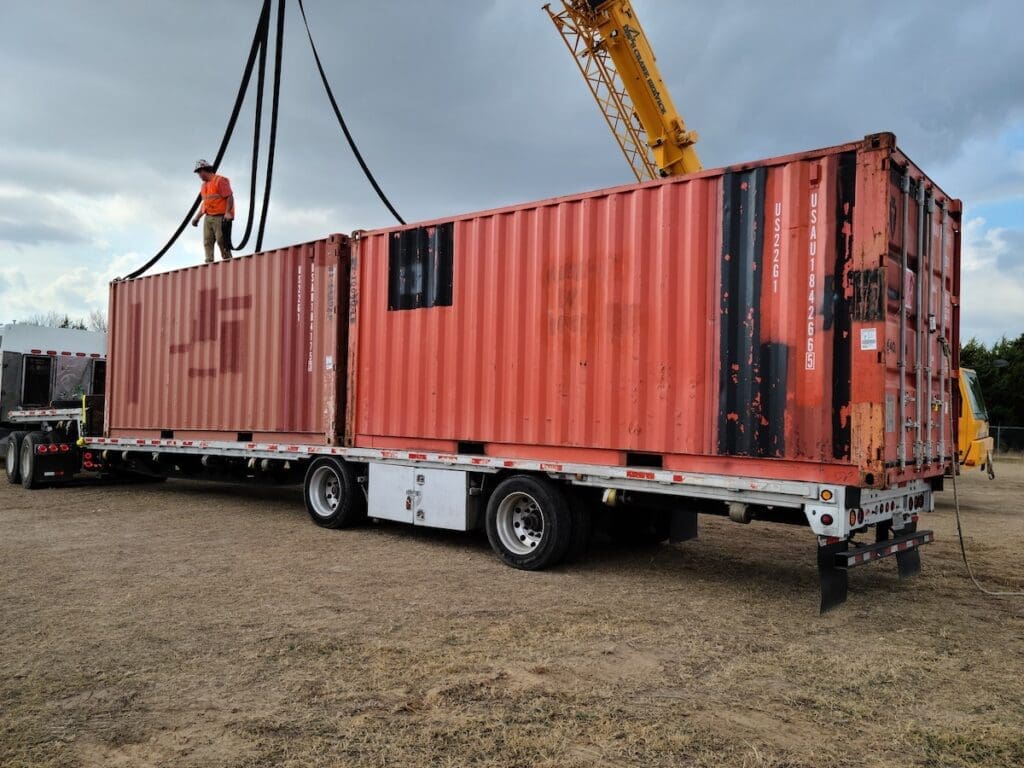Managing every little detail of supply chain logistics for a company can be a huge undertaking. Issues and hiccups are bound to happen, but having an experienced team taking care of everything and getting things running smoothly again is a game-changer. That’s where third-party logistics companies come into play. Logistics outsourcing is when a company utilizes an external provider (a.k.a. the third party) to handle supply chain management. No matter the size or industry of the company, overseeing the entire supply chain can be a lot to handle for one business. Knowing all the benefits and drawbacks of logistics outsourcing and which company is the right fit is crucial.
What Is Logistics Outsourcing?
A logistics company is made up of experienced individuals in the supply chain management industry who are responsible for managing various parts of their client’s supply chain operations. These companies can handle several aspects of the operation, such as inventory management, shipping, warehousing, freight forwarding, fulfillment services, and reverse logistics.
Traditional supply chain management (SCM) is under the same umbrella as logistics; however, although they intersect, they differ in scope and effect. The key differences between the two are that SCM works to improve processes to create competitive advantages while controlling the development of raw materials into products. In contrast, logistics focuses on efficient and cost-effective delivery of goods to customers and meeting their needs and expectations. Logistics can fall into the following four categories:
- Inbound Logistics: Focused on bringing materials into the supply chain or business.
- Outbound Logistics: Focused on delivering goods and products to customers.
- Reverse Logistics: Return of goods by the customer. Processes such as returns or recycling products require Reverse Logistics.
- Third-Party Logistics (3PL): Refers to an organization’s commitment to outsourcing its logistics to a third-party company.
The Benefits
Logistics Outsourcing greatly benefits the company and its clients. Some of the benefits of utilizing Logistics Outsourcing include cost savings, improved efficiency and productivity, access to specialized expertise and resources, and increased flexibility and scalability. All of these enhance the service companies can give to their clients. The biggest benefit of Logistics Outsourcing is the accessibility to experienced individuals in the industry who can handle any complication that might arise. Having a team of people who can handle anything saves time spent overcoming issues and allows faster customer service.
Things To Consider
While Logistics Outsourcing greatly benefits the client and their customers, there are also some drawbacks to consider. The biggest hindrance to utilizing Logistics Outsourcing could be the loss of control and visibility within your supply chain. Another aspect to consider is the possible compromise of the quality of products or services to customers. However, both of these can be avoided with straightforward and clear communication between the client and their logistics partner company.
Choosing the Right Logistics Outsourcing Partner
Choosing the right logistics partner company is essential to the Logistics Outsourcing process. The first step is to identify the needs of the company and its supply chain and how the logistics company will assist. Evaluate all the options, and compare and contrast the individual benefits and downsides of each company. Once the partnering company has been chosen, negotiate the terms of the agreement and specifics of what the partnership moving forward will look like. The final step is to maintain an ongoing, positive relationship with the partnering company to ensure channels of communication are clear and any mishaps are quickly resolved.
FAQs:
What Are the Benefits of Logistics Outsourcing for Businesses?
The benefits of Logistics Outsourcing include increased productivity and efficiency, cost savings, and access to industry expertise.
What Are the Risks of Logistics Outsourcing?
A business risks losing control and visibility of product movement, developing a dependence on the third-party company, and potential loss of quality of service.
What Are the Different Types of Logistics Outsourcing?
Inbound Logistics, Outbound Logistics, Reverse Logistics, and Third-Party Logistics.
How Can Businesses Choose the Right Logistics Outsourcing Partner?
Businesses must evaluate all the available choices and weigh the pros and cons of each option to ensure the partnering company can adequately support the business needs.
Get Started
The discussion about Logistics Outsourcing can be complex. However, once you have chosen the right partnering company for your company and begin utilizing the services they can provide, you will see how Logistics Outsourcing can immeasurably aid your company. Do the relevant research to come to your decision and get started on improving your supply chain management. Get in touch with us today to get started.




